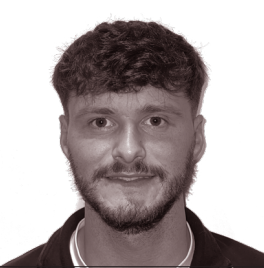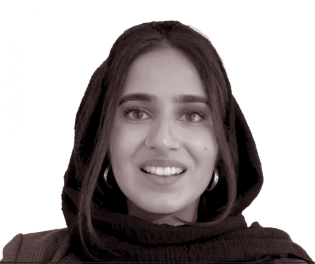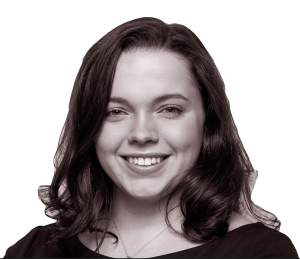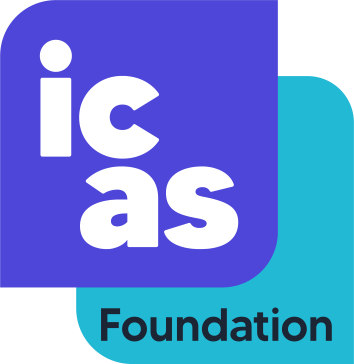On 25 March, ICAS’ annual admission ceremony takes place. Ahead of what will be a milestone in the careers of the next generation of accountants, entrepreneurs, FDs, CFOs and CEOs, Ryan Herman speaks to three newly qualified CAs about their very different routes to ICAS, their experiences of learning during lockdown, and their hopes, fears and aspirations for the future.
What led each of you towards ICAS?

Liam Guthrie (LG): I studied accountancy at an intermediate level at school and found I was good at it. But it was only when I heard about the ICAS Foundation during an open day at Stirling University, and they were talking about bursaries and financial support, that I felt I would probably qualify for assistance. That attracted me to ICAS. So I put in an application. I’ve constantly reminded myself I’m only in this situation because the ICAS Foundation supported me.

Hafsa Saddiq (HS): I came through the school leaver programme, which is like an apprenticeship programme that was
completed through Deloitte and ICAS. So I joined Deloitte when I was 17. It’s a five-year course. And instead of going to uni, you get on-the-job training. At the same time, you’re being funded by the firm to get your ICAS qualification.

Carmen Gammie (CG): I was born into a family of CAs, so I know it’s a very well-regarded qualification, as is ICAS as an organisation. And not just within accountancy – it opens a lot of doors, I think. I was given the opportunity by my employers, Piper Sandler, to do a CA or a specific corporate finance qualification, and I chose to go with ICAS because it gives you a broader knowledge. It’s the breadth of what you learn and where you can take it made it a no-brainer for me.
What surprised you most about the CA qualification?
HS: In my first week of work as a school leaver we had a course on bookkeeping that was run by ICAS – I’m sure anyone reading this will know it. And I remember, not having come from an accounting background and not having taken accounting at school, thinking, “What have I done!” You’ll have moments of self-doubt, when you think you don’t know as much as you do. But everyone who is on that pathway clearly has the capabilities because they have got that far in the first place.
What was the biggest challenge when it came to working and studying during lockdown and what did you learn from that experience?
CG: It became a bit like log on, eat, sleep, repeat…. You weren’t sat in a room, and you couldn’t talk about anything over lunch, or chat with the person sitting next to you about homework. So it made it difficult to gauge how well you were performing, not knowing if somebody else felt the same way about the thing you thought was difficult. If you’re in a classroom, you can ask the teacher or lecturer questions at the end. It’s not quite the same on Teams. Also, coming out of that, I really enjoy being in the office and being
around other people. I think there’s quite a lot you pick up from your colleagues without realising it… a sort of inadvertent learning.
LG: I work for Phoenix Group. There are 8,000 employees and no one was furloughed. We could do everything we needed to do virtually. So the company had to work out how to bring people back to the office, and there was some resistance. But the general approach has been that we need to stick with hybrid working. It’s effective, and it gives people the best work-life balance.
HS: I’m definitely more productive when I’m in an office or classroom environment when it comes to studying. I found doing that on my own was quite challenging.
Unlike some other professional bodies, ICAS decided to continue staging exams throughout the pandemic.
CG: I’m grateful that ICAS carried on running the exams. I know quite a lot of the other qualifying bodies postponed exams in 2020, whereas my timeline wasn’t impacted from a professional perspective, which was important to me.
What made you choose to work for your current employers and what does your role entail?
HS: I joined ScottishPower in December, working in an internal controls role. This is a very interesting and exciting business – it’s the UK’s first integrated energy utility to have 100% of its generation coming from renewable sources. There’s a lot going on, and it’s very relatable to everyone’s lives, especially with the ongoing energy crisis. ScottishPower is doing a lot to try to pave the way towards net zero and I see that every day through the work I’m doing.
CG: As a profession, we have a role to play with the transition towards net zero, through things like ESG reporting. I actually work in an energy corporate finance team. When I started, the majority of the deals we did here were for oilfield services transactions. There’s been a huge shift – there’s now a much bigger focus on the energy transition and renewables.
LG: I once heard someone say, “I never want to get comfortable in the role that I’m in”. That resonates with me. I always want to be challenged. But I also want to be somewhere where my personal values are aligned to what the business is trying to achieve. That idea that you are making a difference for somebody would be really important to me. Phoenix is a pension company, whose mission statement is “to help people secure a life of possibilities”. Retirement and saving is a very important part of your life and your career, especially given the cost-of-living crisis.
More broadly, how important is sustainability to you, both personally and professionally?
LG: The consumer is often told that they as individuals are the ones who have to make a change. But it’s mostly corporations that are having the most negative impact. We’ve recently seen a major energy company cutting back on sustainability targets. I worry that without corporates agreeing to a collective approach, and being held accountable, we’re not going to get there.
We’re seeing significant developments happening in technology, particularly around AI and machine learning. Do you think new tech is something that CAs need to fear or embrace?
HS: Even thinking back to when I joined Deloitte, there’s been a lot of changes. There’s a greater emphasis and reliance on analytics. Back in the day, a lot of our time would be taken up by methodically sifting through a lot of data. The increasing use of analytics is freeing us up to spend more time in more important areas. I can remember one of my clients had everything on paper – that was only five years ago!
CG: I think there is an opportunity for technology to handle lower-level tasks, but there are things that computers may never be able to do around understanding business and its processes. The nature of the CA training means that every one of us is equipped with the necessary skills to analyse a business and then consider how we can give value back. Machine learning and AI are more factual. You put information in, and it gives information back out. But it wouldn’t be able to tell you how you can improve things that are qualitative rather than quantitative.
LG: I think there’s probably some disruption, adjustments, and integration as a result of technology. I’m thinking along the lines of ChatGPT. I don’t think it’s something we should shy away from if it has benefits, but it’s also a delicate issue if there’s a risk it could result in the need for fewer CAs in particular roles.
Do you feel more could be done to attract new people into accountancy or similar professions?
LG: I remember being at school and being split into two groups and being told potentially 50% of you guys could go to university and 50% won’t. It suddenly felt like you had to make a choice.
Something that I feel quite strongly about is that you are able to discover other ways into education, for example, through apprenticeships or school leavers programmes. Or you can go to college first and then go to university. So, it doesn’t have to be one or the other. But it feels like you’re being told from quite an early age that it’s a binary choice.
You become fully qualified CAs on 25 March. Do you know much about the admission ceremony and what are you most looking forward to about it?
CG: I’m really looking forward to it. It’s a chance to meet and network with other people who are being admitted at the same time, some of whom I’ve only ever met online before. It’s also a fantastic opportunity to celebrate what is a massive achievement for everybody, as a lot of time and effort has gone into reaching this point in our lives. It will be nice to spend time with family and friends celebrating that.
I also know we take an oath of ethics during the admission ceremony, because obviously we learn a lot about that during the qualification and how acting ethically is fundamental to being an accountant.
LG: I will be one of the speakers at this year’s admission ceremony, which is an amazing honour and a privilege. I’m very much looking forward to celebrating the achievements of myself and my peers. And it will be good to hear about other people’s experiences while studying, too – and to actually meet them in person.
HS: Because I was a school leaver I never went to university myself. So, yes, I’m very excited about the admission ceremony as it will be my first chance to experience what I imagine will be the equivalent of a graduation ceremony.
---------------------------------------------
The ICAS Foundation is a registered Scottish charity No SC034836.
You can support the work of the ICAS Foundation by donating, volunteering to mentor a student or providing an internship or work placement. You can also contact us to discuss a specific area where you would like to help.
This article was originally published in the ICAS CA Magazine, March 2023.
